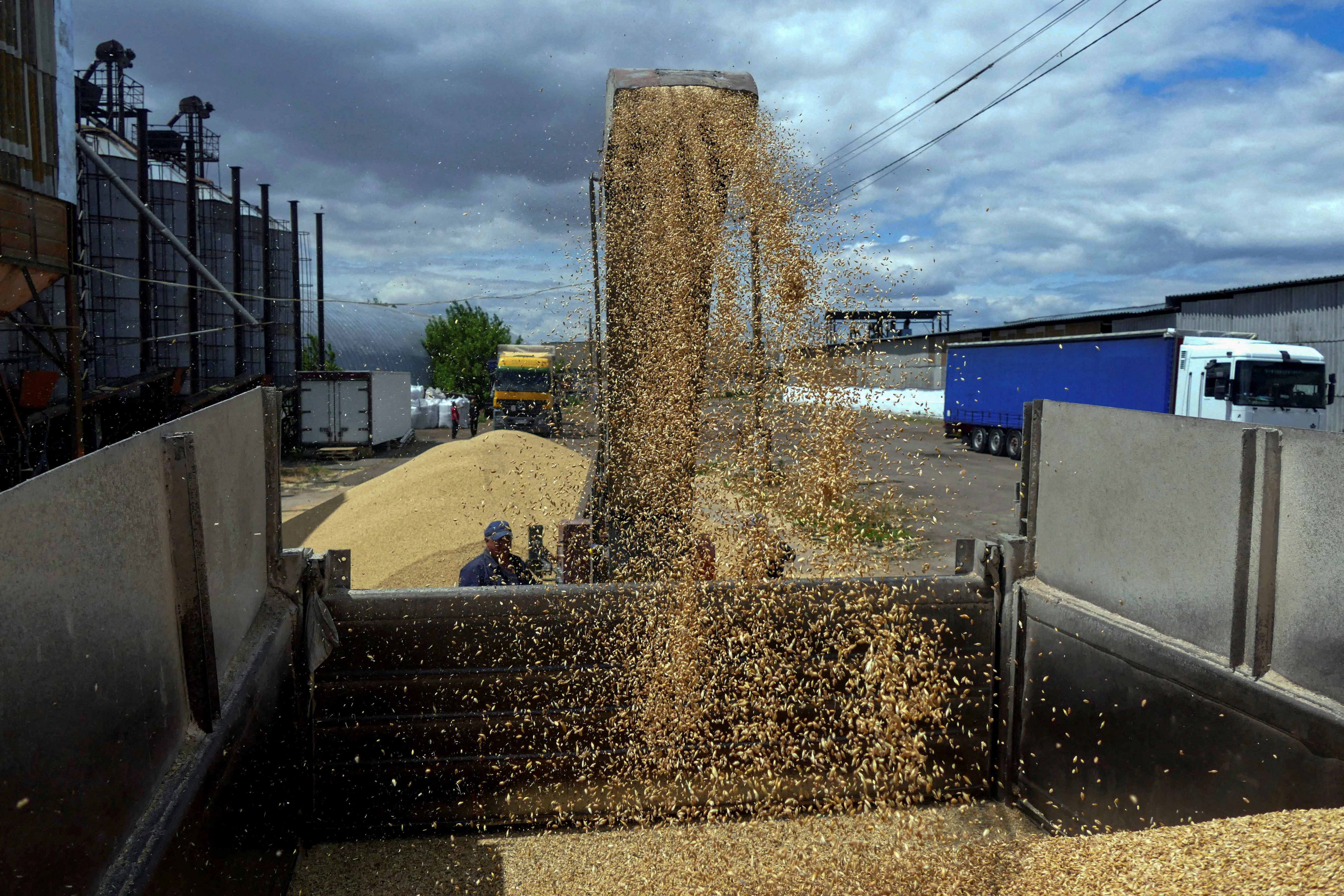WARSAW (Reuters) – The European Union executive said on Sunday that unilateral measures on trade by EU member states were unacceptable after Poland and Hungary announced bans on imports of grain and other food from Ukraine to protect their domestic agricultural sectors.
After the Russian invasion closed some Black Sea ports, large quantities of Ukrainian grain, which is cheaper than that produced in the European Union, ended up staying in the central European countries due to logistical bottlenecks, hitting prices and sales to local farmers.
The case created a political problem for Poland’s ruling nationalist Law and Justice party in an election year as it angered people in rural areas where support for Law and Justice is usually high.
“We are aware of the declarations by Poland and Hungary regarding the ban on the import of grain and other agricultural products from Ukraine,” a spokesperson for the European Commission said in an emailed statement.
“In this context, it is important to stress that trade policy is the exclusive prerogative of the EU and, therefore, unilateral measures are unacceptable.”
“In such difficult times, it is necessary to coordinate and harmonize all decisions within the European Union,” the statement added.
Polish government spokesman Piotr Müller told the state news agency PAP that the government is in constant contact with the European Commission on the issue, and that the ban is possible due to a security clause.
Poland and Hungary have been embroiled in long-running conflicts with Brussels over issues including judicial independence, media freedoms and LGBT rights, and both have had money withheld over concerns about the rule of law.
Ukraine’s Agriculture Ministry said in a statement that Ukraine’s Agriculture Minister Mykola Solsky had spoken with his Hungarian counterpart Istvan Nagy on Sunday and confirmed that unilateral decisions were unacceptable. She added that the two agreed to speak again soon.
On Saturday, the ministry said the Polish ban conflicted with existing bilateral agreements on exports, and called for talks to settle the issue.

[1/2] A worker loads a truck with grain at a station while harvesting barley in Odessa region, Ukraine, June 23, 2022. REUTERS/Igor Tkachenko
Meanwhile, Bulgarian Agriculture Minister Yavor Gechev said the country is also considering a ban on Ukrainian grain imports, local agency BTA reported on Sunday.
Crossing
The Minister of Development and Technology said on Sunday that the Polish ban, which took effect on Saturday evening, will also apply to the transit of these products across the country.
“The ban is complete, including the ban on transit through Poland,” Waldemar Buda wrote on Twitter, adding that talks would take place with Ukraine to create a system that would ensure that goods only pass through Poland and do not end up on the domestic market.
The state news agency Ukrinform said Ukrainian and Polish ministers were due to meet on Monday in Poland and arranging the transit would be the focus of the talks.
Polish Agriculture Minister Robert Tellos was quoted as saying on Sunday that the ban was necessary “to open the eyes of the European Union to the fact that further decisions are needed that will allow products from Ukraine to go deep into Europe, and not remain in Poland.”
The Finance Ministry said the ban would last until June 30.
Ukraine normally exports most of its agricultural commodities, especially grain, through its Black Sea ports, which were unblocked in July, in line with an agreement between Ukraine, Turkey, Russia and the United Nations.
That agreement is set to expire on May 18, and Moscow indicated last week that it may not be extended unless the West removes barriers to the export of Russian grain and fertilizer.
The Ukrainian ministry said that about 3 million tons of grain left Ukraine every month through the grain corridor in the Black Sea, while only up to 200,000 tons travel to European ports through Polish territory.
Solski said over the weekend that between 500,000 and 700,000 tons of various agricultural products cross the Polish border each month, including grain, vegetable oil, sugar, eggs, meat and other products.
(Reporting by Alan Sharlich). Editing by Sharon Singleton
Our standards: Thomson Reuters Trust Principles.

“Incurable bacon nerd. Lifelong tv aficionado. Writer. Award-winning explorer. Evil web buff. Amateur pop culture ninja.”
